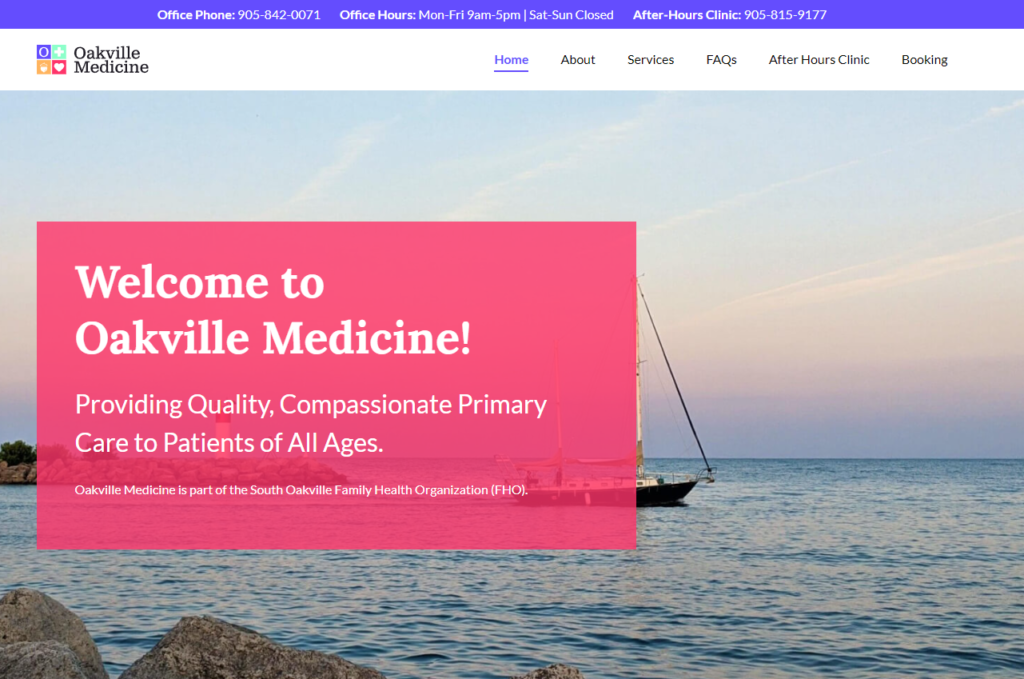Healthcare SEO: Boost Your Medical Practice's Online Visibility and Patient Acquisition
SEO Strategies for Healthcare Professionals
In today’s digital age, having a strong online presence is crucial for healthcare providers looking to attract potential patients. Effective Search Engine Optimization (SEO) can significantly increase your visibility and help you reach more clients while maintaining HIPAA compliance.
Here are some key strategies to implement:
Create a User-Friendly, HIPAA-Compliant Website:
- Ensure your website is mobile-responsive, loads quickly, and uses HTTPS encryption
Use clear navigation to help visitors easily find services and information
Implement an intuitive structure with categories for different specialties or treatments
Optimize Your Content:
- Write compelling, keyword-rich descriptions for each medical service
Create engaging provider bios that include relevant keywords and expertise
Maintain a blog to share health insights, patient education, and local health news
Use Alt Text for Images:
- Add descriptive, keyword-rich alt text to all medical images
Include the treatment name, key benefits, and brief description in the alt text
Leverage Long-Tail Keywords:
- Target specific phrases like “pediatric allergy specialist in [city]” or “minimally invasive knee surgery in [area]”
Use these keywords naturally in your content, titles, and meta descriptions


Healthcare Listing Optimization for Search Engines
Your healthcare service listings are the core of your online presence. Here’s how to optimize them for search engines:
Organize Your Services:
- Create separate pages or categories for different medical specialties, treatments, or conditions Use clear, descriptive URLs for each service (e.g., www.yourpractice.com/knee-replacement-surgery)
Optimize Image Files:
- Use descriptive, keyword-rich file names for your medical images
Compress images to ensure fast loading times without sacrificing quality
Implement Schema Markup:`
- Use schema.org vocabulary for medical practices to provide structured data about services
Include information like accepted insurance, office hours, and available treatments
Create Detailed Service Descriptions:
Write unique, keyword-rich descriptions for each medical service Include information about the procedure, recovery time, and expected outcomes
Showcase Patient Testimonials:
Feature reviews and testimonials from satisfied patients (with their consent)
Include schema markup for reviews to enhance their visibility in search results
Social Media Integration for Healthcare SEO

Social media can significantly boost your SEO efforts and online visibility:
Choose the Right Platforms:
- Focus on professional platforms like LinkedIn for networking with other healthcare professionals
Maintain an active presence on patient-friendly platforms like Facebook and Instagram
Optimize Your Profiles:
- Use consistent branding across all platforms
Include relevant keywords in your bio and profile descriptions
Share Health Tips Regularly:
- Post high-quality images and infographics about health topics with engaging captions
Use relevant hashtags to increase discoverability
Engage with Your Community:
- Participate in local health discussions and events
Share valuable content about preventive care and healthy living
Link Back to Your Website:
- Include links to your website in your social media profiles
Share links to specific service pages or blog posts on your social feeds

Local SEO for Medical Practices

Local SEO is crucial for healthcare providers:
Google Business Profile Optimization:
- Claim and verify your Google Business Profile listing#
- Keep your practice information accurate and up-to-date
- Add high-quality photos of your facility and staff
Local Keywords:
- Incorporate location-based keywords into your website content
Create pages for different medical conditions
Online Directories:
- List your practice in relevant healthcare directories and local business listings Ensure your Name, Address, and Phone number (NAP) are consistent across all listings
Encourage Reviews:
- Ask satisfied patients to leave reviews on Google, Healthgrades, or other platforms Respond promptly and professionally to all reviews while maintaining patient privacy
Local Content Creation:
- Write blog posts about local health events, medical advancements, or community outreach Create content highlighting your involvement in the local healthcare community

Healthcare-Specific Keyword Research and Implementation
Effective keyword research is essential for improving your visibility in healthcare searches:
Identify Your Specialties:
- Research keywords specific to your medical specialties, treatments, or target patient groups Use tools like Google Keyword Planner or SEMrush for healthcare keyword ideas
Analyze Competitor Keywords:
- Look at the keywords used by successful practices in your area Identify gaps or opportunities in their keyword strategies
Use Medical Terminology and Layman’s Terms:
- Incorporate both clinical terms and patient-friendly language Balance these with more general health terms for broader appeal
Target Symptom and Treatment Keywords:
- Include keywords related to both symptoms and treatments Use phrases like “chronic back pain treatment in [city]” or “allergy relief options”
Implement Keywords Naturally:
- Use your chosen keywords in titles, headings, and throughout your content Avoid keyword stuffing; prioritize readability and patient-friendly language

Case Study: Oakville Medical Center Success

Challenge: Low online visibility for a multi-specialty clinic in a competitive suburban market
Solution: Implemented comprehensive SEO strategy focusing on service-specific content and patient education
Result: 200% increase in organic traffic to the clinic’s website and 50% increase in new patient inquiries within 6 months

